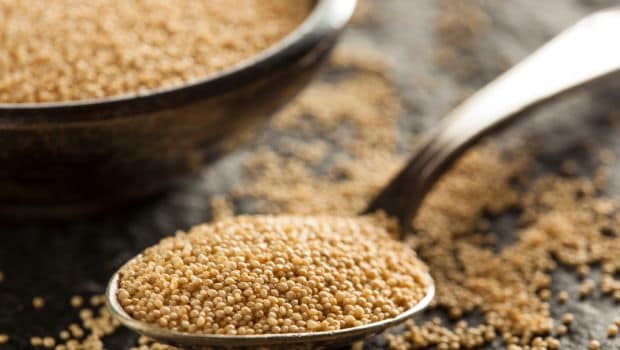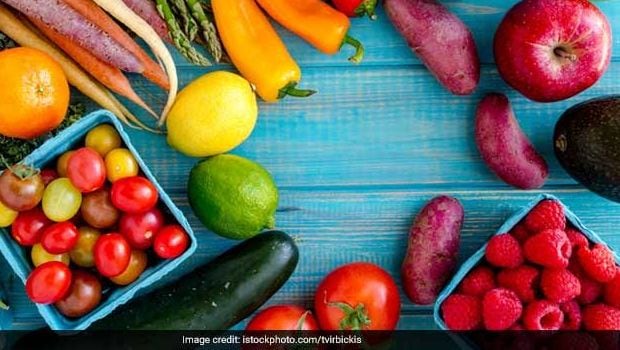Pregnancy could prove to be an overwhelming time for some. It is natural to be confused understanding your body's demands during this time. If it is your first time, it gets all the more baffling. Your diet is suddenly under the radar. When it comes to pregnancy, everyone seems to have a tip or two. It is very essential to be able to tell myths from facts and pay heed to advices only from trustworthy sources. Eating a balanced diet that's rich in vitamins and minerals is the best way to support a growing baby say experts. Healthy breakfasts are a must too; make sure it is a good mix of protein, vitamins and fibre. Folate, or folic acid, is a B-group vitamin essential for the healthy development of the foetus in early stage of pregnancy.
Experts say that a pregnant woman need not make drastic changes to her diet in the first trimester; no additional intake is particularly advised. From the second trimester onwards, an additional 350 calories are recommended to be consumed. Nutrient dense foods like whole grains and millets are good to be included in decent quantities around this time; leafy greens veggies and antioxidant rich fruits are also a must. Pregnant women should steer clear of junk and oily food; they are concentrated sources of unhealthy fat, which may cause gastric problems and nausea.
(Also Read: 6 Effective Natural Remedies For Morning Sickness During Pregnancy)

Pregnancy eating tips: Nutrient dense foods like whole grains and millets are good to be included
Pregnant women need to be very mindful of the nutrients they are taking. Health Practitioner and Macrobiotic Nutritionist, Shilpa Arora ND tells us, "It is important to load up on nutrients and micro-nutrients during pregnancy like calcium and iron for strength and energy, vitamin D for bone health. Protein from lentils and eggs, and fibre from complex grains like ragi, jowar and amaranth are also required. It is also important to nourish yourself with healthy fats you find in nuts and seeds. Loading up on fruits and a variety of veggies is important to derive micro-nutrients. Keep yourself hydrated at all times, be it with water, coconut water or chaach. Caffeinated drinks and alcohol are also not very advisable."
Dr. Mohita Goyal, Consultant - Obstetrics and Gynaecology, Motherhood Hospital, Pune, also hands out some dietary dos and don'ts to ensure during pregnancy:
Dos That Every Pregnant Woman Must Ensure
1. Have frequent and small portions in meals. Make sure your small meals are filled with ample nutrients.
2. Eat fibre-rich diet like whole cereals, pulses, fruits and vegetables to avoid constipation.
3. Consume extra protein and calcium-rich foods like dairy products, legumes, egg, sweet potato etc.
4. Drink plenty of water to wash away the toxins and prevent urinary tract infections.
(Also Read: What To Eat During Pregnancy: 7 Foods That You Should Include In Your Diet)

Eat fibre-rich diet like whole cereals, pulses, fruits and vegetables to avoid constipation
Don'ts That Every Pregnant Woman Must Ensure
1. Avoid foods that are high on fats/sugar/salt/oil.
2. Avoid alcohol/lots of caffeine.
3. Avoid high mercury fish, under cooked meat, raw sprouts and raw eggs.
4. Avoid unpasteurised milk, cheese and fruit juice.
(Also Read: Nutrition During Pregnancy: Debunking 5 Common Myths)

Pregnancy eating tips: Avoid alcohol/lots of caffeine
Dr. Anu Sridhar, MBBS, MD (Obstetrics and Gynaecology) Consultant Fortis Hospital, Bannerghatta Road says, "Even after birth, a mother's diet is equally important. A good nutritional diet helps a mother in her body recovery phase and gives her the energy she needs to take care of her baby. To ensure that the baby is well nourished, it is important for the mother to drink an adequate amount of fluids and eat a balanced normal diet."
Lean meat, lentils, amaranth, brown rice and whole grains are some foods that pregnant women are often advised to include in their diet. However, every mother's body is different. If something is not suiting you or is causing even a minor discomfort, you must consult your gynaecologist.
About Sushmita SenguptaSharing a strong penchant for food, Sushmita loves all things good, cheesy and greasy. Her other favourite pastime activities other than discussing food includes, reading, watching movies and binge-watching TV shows.






